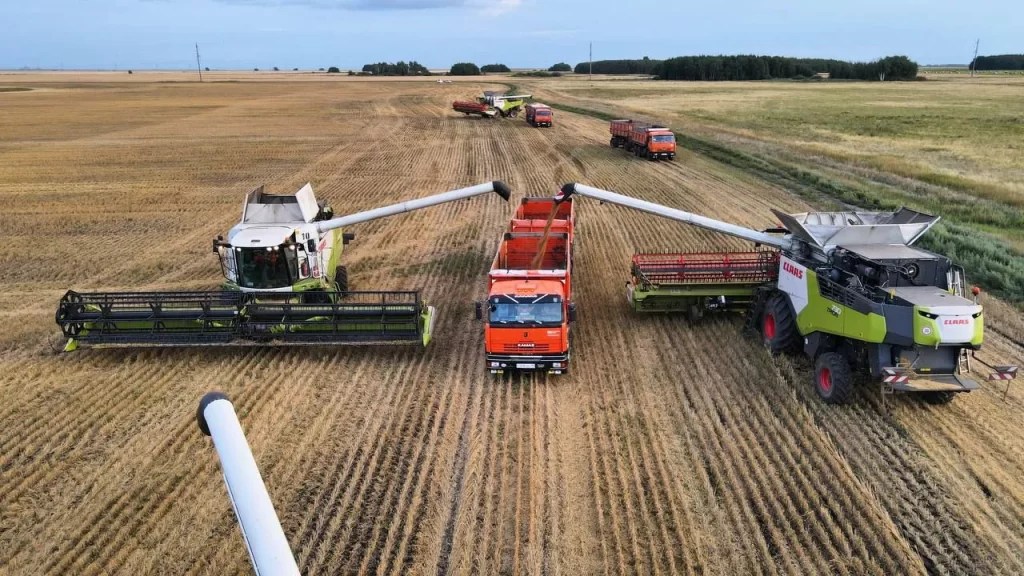
Atameken-Agro Holding Looks to the Future with Confidence
To achieve the goals set tomorrow, the right investments are needed today. Understanding all the risks of farming in the region (changes in precipitation throughout the year, salt marshes, high groundwater, which reduce the areas where crops can be grown with high precipitation), the Atameken-Agro (AA) agricultural holding took out a loan from the European Bank for Reconstruction and Development (EBRD) in December 2023 to purchase state-of-the-art agricultural machinery in the amount of 10 million US dollars. After that, the holding made an investment of 20 million US dollars, which will be used to replace the existing fleet with combines, tractors and seeders using the latest technology. It is important to note that this investment will not only dramatically increase the efficiency of farming through digitalization, increased productivity and accuracy of activities, but also reduce greenhouse gas emissions, thereby introducing a “braking” effect on global warming. Who among us is not worried/surprised by the rapidly changing climate?
By implementing such an investment, the holding, which processes with no-tillage technology – the most efficient resource-saving technology in the grain industry, is also switching to digital solutions that allow for more efficient management of production processes and increase the efficiency of working with land, water and fuel to the maximum. The introduction of legumes into crop rotation, practiced by AA, has a positive effect on soil fertility and is also a valuable source of high-quality protein for humans.
Thus, new generation combines and tractors will reduce greenhouse gas emissions by at least 85 tons of CO2 equivalent per year, which is a significant contribution to the goals set by Kazakhstan under the Paris Agreement.
Inna Punda, an agribusiness specialist at the Rome headquarters of the Food and Agriculture Organization of the United Nations (FAO), visited AA today to learn about the holding’s development plans. “Improving soil fertility and reducing greenhouse gas emissions are the key to future food security. According to UN estimates, Kazakhstan’s population will increase by 30% by 2050, while the country is located in a risky farming zone. Ensuring food security for future generations of the country and the world requires us to radically revise our approaches to farming based on a high-quality evidence base. Efficient use of natural resources is the main component of resilience to the (numerous!) challenges of our time.”
This project is being implemented within the framework of the NEXUS programme for agribusiness in Central Asia and is part of a consortium led by the Organisation for Economic Co-operation and Development (OECD) and also funded by the German Federal Ministry for the Environment, Nature Conservation, Nuclear Safety and Consumer Protection (BMUV).
FAO and the EBRD have been implementing a cooperation programme aimed at developing countries with economies in transition for more than 25 years. Green economy, inclusive development and digitalization are the main pillars of the organizations’ joint work.
Inna Punda,
Agribusiness expert
Food and Agriculture Organization of the United Nations (FAO), Rome